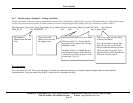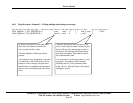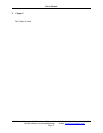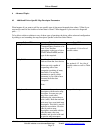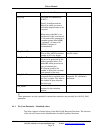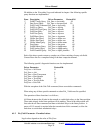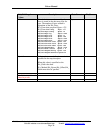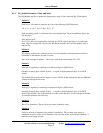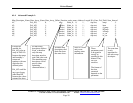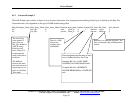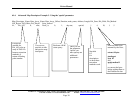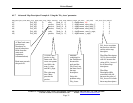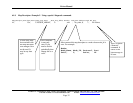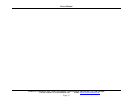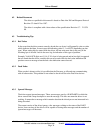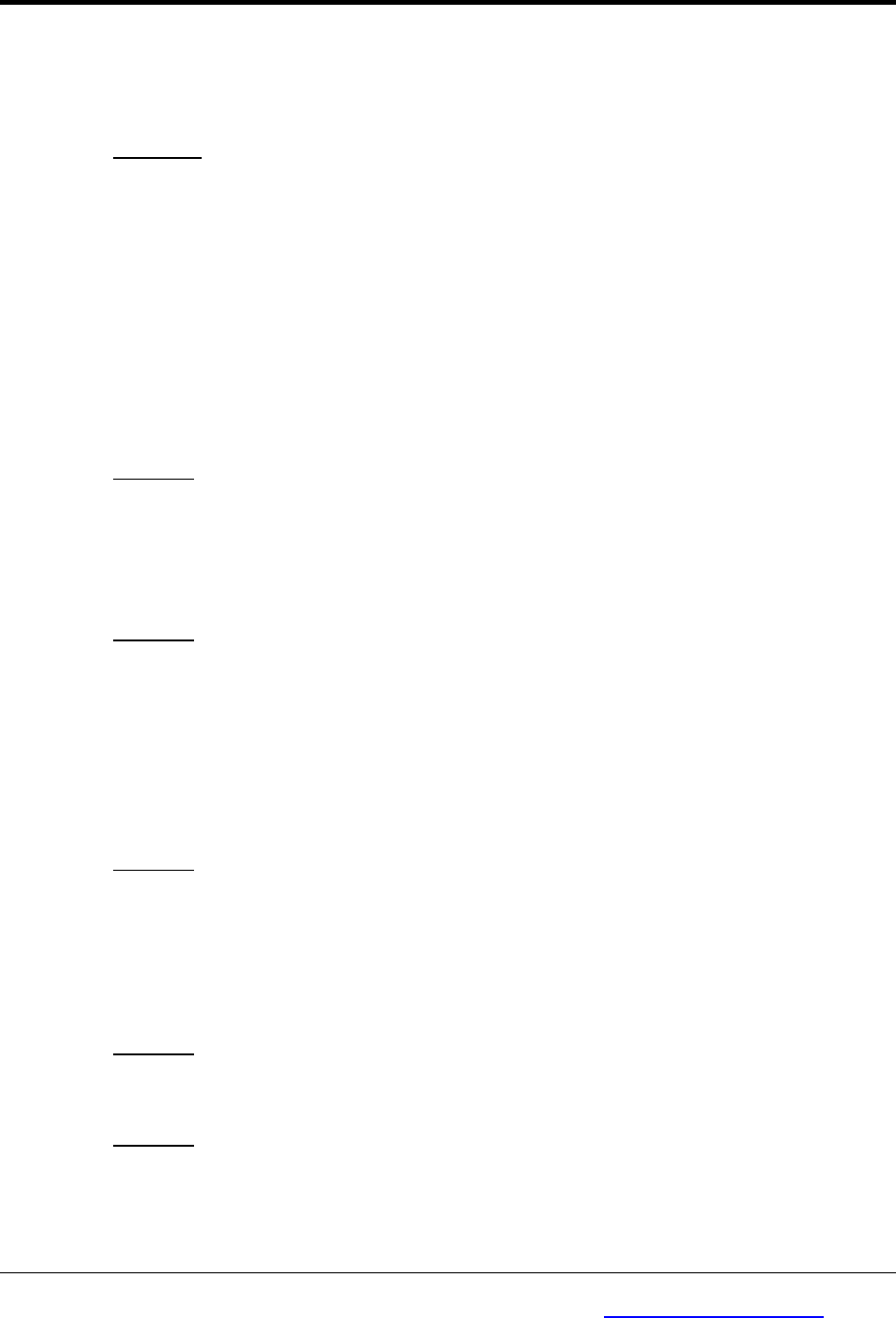
Driver Manual
FieldServer Technologies 1991 Tarob Court Milpitas, California 95035 (408) 262-6611 fax: (408) 262-9042
Visit our website: www.sierramonitor.com E-mail: sierra@sierramonitor.com
Page 27
6.1.3 DA_Method Parameter Values and Notes
The DA_Method specifies a method for interpreting a range of bytes when the DA_Field=special.
Method 1:
Each byte is valid when its contains only one of the following ASCII characters.
{ 0, 1, 2, 3, 4, 5, 6, 7, 8, 9, A, B, C, D, E, F }
Each byte being parsed is considered to be a hexadecimal digit. The most significant digit is the
left most byte.
Thus the four bytes
30 31 32 33 (hex) are interpreted by regarding the ASCII value of each byte as a hexadecimal
digit. Thus we interpret the 4 bytes as the hexadecimal number 0123 and the decimal value is
equal to 291.
Method 2
This method is the same as method one but is used for humidity's and temperatures which are
transmitted as the number of tenths of a unit.
Thus in the example of method 1. The 4 bytes yield the decimal number 29.1 °F/%.
Method 3
Each byte is regarded as containing a hexadecimal digit in ASCII format.
Example: incoming byte contains 41(hex). -> regard as the hexadecimal digit 'A' in ASCII
format.
The method then converts the hex digit to a series of 8 bits. In this example the bits are 00001010
with the msb being the left most.
Method 4
Each byte is regarded as containing a hexadecimal digit in ASCII format.
Example: incoming byte contains 41(hex). -> regard as the hexadecimal digit 'A' in ASCII
format. The decimal value of the this digit is written to the data array. In this example the number
10 would be written to the data array.
Method 5
There is no translation. The raw bytes are written to the data array.
Method 6
Processes an array of elements using method 1 translation. The raw data being parsed is
considered to consist of DA_elecnt elements each consisting of DA_bytecnt bytes. Method 1 is
applied to each cluster of bytes.



